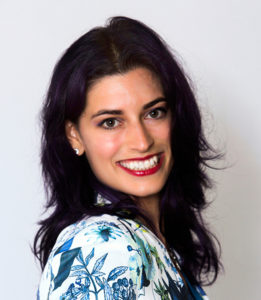
07 Mar The Lovely Land of Language Interference
The following article by Athena was published a while back. The NAJIT Observer team would like to offer it for your reading pleasure once more. Enjoy!
Have you ever taken a dash of one language with a sprinkle of another, mixed them together and simmered to taste? Of course you have! You’re bilingual. You’re bound to have stirred your languages together at one point or another.
There’s actually a fancy name for this: Language contact. Language contact is the secret demon that lies behind many of our language mistakes. I would venture to say that it is also the secret fairy godmother that gives rise to new usage and even new ways of thinking.
Sometimes I understand French grammar better when I hear the syntax of a French speaker in English. Take verb tense, for example. Both languages have past, present and future. So finding equivalents should be simple, right? Wrong. Of course that’s not right. If it were right, learning languages would be easy, instead of incredibly exasperating! It always makes me wonder, How did this become the idiomatic way to say things? Who decided it one day? This, to me, is why language is endlessly fascinating.
Let’s take a look at some examples, shall we?
-
- Present perfect: “Depuis.” Depuis is a magical French word that means “since.” In French, you literally say, “I live here since five years.” Note that with the magical word depuis, you don’t need the present perfect like in English: “I have lived here for five years.” It’s only when you see this that you realize how verb tense is so much more malleable than we would imagine.
- Future tense: “Quand je…” Do you need to tell someone that you’ll arrive at their house soon? In French, when you are discussing something that will happen in the future, you actually put it in the future. So you would literally say, “Tomorrow, I’ll see you when I will arrive to your house…” Note than in English, the “will” is unnecessary and sounds a bit odd, because we use present tense after the word “when.” However, it actually makes sense, logically, to conjugate this verb in the future.
- Addled adverbs: “Basically.” Oh, incorrigible cognates. In English, if you want to sum it all up, you can just use that lovely all-purpose word. So can I say basiquement in French, since basique is a word? No, even though I have tried. If you really want to sound natural, you can say en gros, which is kind like saying, “on the whole.”
- Syntax: “Also.” This time, the issue is word order. In English, you can say, “I would also like some cheese.” You can say, “I would like some cheese, also.” But you cannot say, “I would like also some cheese.” In French, you can. And why not? Who decided where we were allowed to put “also” in a sentence? Nobody and everybody, it would appear.
The crazy thing is how nuanced many of our examples of language contact are. Sometimes it’s hard to even pinpoint why certain phrasings sound a little off. Usually the only way to know is by hanging out with people who are as nerdy about language as you are (take a gander at How to Shamelessly Steal Language Skills from our Friends and Colleagues for more on that topic).
And sometimes, even though something sounds off, I’ll use it anyway. Take the verb “to live,” for example. In both French and Spanish, you can live a day. You can live a situation. You can live a feeling. In English, you can experience those things, not live them. But there is a different impact when you say “live.” It feels fuller, stronger, more real, perhaps.
What have you lived in the lovely land of language interference? I’m curious to know. Comment below!
 Athena Matilsky fell in love with languages the year she turned sixteen. She majored in Spanish interpreting/translation at Rutgers University and also studied French. After graduation, she taught elementary school in Honduras and then returned home to begin freelancing as a medical and court interpreter. She later became a staff interpreter for the NJ judiciary. She has gone on to earn certifications as a healthcare interpreter and a federal court interpreter for Spanish and as a court interpreter for French. Most recently, she received her Master’s Degree in Conference Interpreting from Glendon at York University. She currently works as an interpreter and teacher, training students to acquire the skills necessary to pass state and federal interpreting exams. When she is not writing or interpreting, you may find her practicing acroyoga or studying French. Website: www.athenaskyinterpreting.com
Athena Matilsky fell in love with languages the year she turned sixteen. She majored in Spanish interpreting/translation at Rutgers University and also studied French. After graduation, she taught elementary school in Honduras and then returned home to begin freelancing as a medical and court interpreter. She later became a staff interpreter for the NJ judiciary. She has gone on to earn certifications as a healthcare interpreter and a federal court interpreter for Spanish and as a court interpreter for French. Most recently, she received her Master’s Degree in Conference Interpreting from Glendon at York University. She currently works as an interpreter and teacher, training students to acquire the skills necessary to pass state and federal interpreting exams. When she is not writing or interpreting, you may find her practicing acroyoga or studying French. Website: www.athenaskyinterpreting.com
Main photo by Enrique Hoyos from Pexels. Body photo by Benjamin Svobodny from Pexels.

